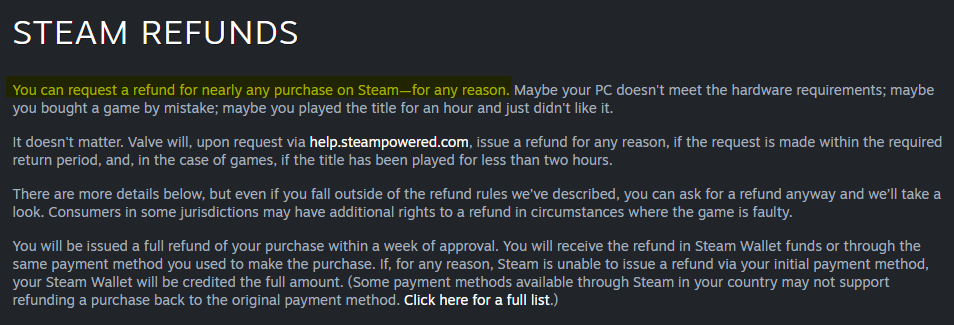Is Steam Safe?
Laura Martisiute
Reading time: 9 minutes

Table of Contents
If you use or plan to use Steam, you need to know: Is Steam safe?
Below, we explain whether Steam is:
- Safe to use.
- Good for privacy.
We also look at some steps you can take to improve both your safety and privacy when using this online service.
What Is Steam?
Steam is a digital distribution platform developed by Valve Corporation, primarily for video games. Launched in 2003, Steam provides a comprehensive ecosystem for gamers and developers.

Steam offers a vast library of games, ranging from AAA titles to indie games. Users can purchase, download, and play games from the platform, along with accessing various social features such as friends lists, chat functionality, groups, and forums.
Games and software are automatically updated on Steam, ensuring users always have the latest version without needing to download patches manually. Many games on Steam support cloud saving, which allows players to save their progress online and continue from where they left off on any device with Steam installed.
Is Steam Safe?
Depends on your definition of “safe.”
Steam utilizes HTTPS to secure transactions, ensuring your payment information is protected, offers two-factor authentication when logging in from a new device, and has robust account recovery options in case your account is compromised.
That said, users must be careful to only use official links to download Steam and games within the platform to avoid downloading malware.
Steam experienced a significant data breach in 2011, with approximately 35 million users affected due to an exploit in the password reset system. Steam responded swiftly, notifying users and patching the vulnerability.
Over the years, Steam has also had a number of vulnerabilities and bugs.
For example, in 2020, researchers at the cybersecurity company CheckPoint found several critical vulnerabilities in Steam that would have allowed bad actors to take over hundreds of thousands of computers remotely without needing users to click on malicious links.
Is Steam safe for payment?
Yes, Steam is generally safe for making payments. It is a well-established platform owned by Valve Corporation and has millions of users worldwide. It’s been around since 2003.
Steam supports bank transfers, credit cards, and PayPal and uses industry-standard encryption to protect your personal and payment information. Valve has systems in place to detect and prevent fraudulent transactions.
Steam offers two-factor authentication (Steam Guard) to add an extra layer of security to your account.
You should always make sure you are on the official Steam website or using the official Steam client when making payments. Avoid sharing your account information, and be cautious of phishing scams.
Is Steam safe from hackers?
No, Steam is not safe from hackers.
Although Steam has various security measures in place (including FA, SSL encryption, and security updates) to protect its users, Steam accounts can and do get hacked into. According to a 2015 Bitdefender article, thousands of Steam accounts are hacked every month.
This is because many Steam accounts have significant monetary value due to the games, DLCs, and other purchases made by the user. Some Steam accounts have high levels, rare achievements, or a long gameplay history, making them more desirable to other gamers.
Steam accounts may also contain personal information such as email addresses, billing information, and payment methods, which can be used for identity theft or further fraudulent activities.
A 2011 breach compromised the personal information of around 35 million users, including usernames, hashed passwords, and encrypted credit card details.
In 2023, Valve’s Steam store was exploited to distribute malware to a limited number of users after a hacker breached multiple game developer accounts and spread malware via game updates.
More commonly, Steam accounts are hacked through phishing and password attacks.
Is Steam safe for PC?
Yes, Steam is generally safe for PCs. It is a well-established platform operated by Valve Corporation, a reputable company in the gaming industry. Steam uses industry-standard encryption to secure transactions and protect user data.
Games available on Steam are typically vetted by Valve, reducing the risk of malware. Moreover, Valve regularly updates the Steam client to address security vulnerabilities and improve performance.
Steam also has a reporting system that allows users to flag malicious content or behavior.
Is Steam safe to use a debit card with?
Yes, using a debit card on Steam is generally considered safe. Steam uses industry-standard SSL encryption to protect your payment information during transactions, and all transactions are processed securely through reputable payment gateways.
Steam offers two-factor authentication (Steam Guard), adding an extra layer of security to your account.
Steam has systems to detect and prevent fraudulent transactions.
Is Steam safe, according to Reddit?
Yes, the general consensus on Reddit is that Steam is safe to use. However, Reddit users warn that, like any company, Steam and its users are targets for hackers.

Is Steam safe for laptops?
Yes, Steam is generally safe for laptops.
Operated by Valve Corporation, Steam uses industry-standard encryption to secure transactions and protect user data.
The platform typically vets games, which reduces the risk of malware, and Valve frequently updates the Steam client to address security vulnerabilities and enhance performance.
Additionally, Steam features a reporting system that allows users to flag malicious content or behavior.
Is Steam safe to buy from?
Yes, Steam is generally considered safe to buy from. It uses industry-standard encryption to protect your payment information during transactions and vets games for malware. Furthermore, Steam’s community features user reviews and ratings that help you make informed purchasing decisions.
Steam also has a good refund policy. Users can ask for a refund for almost any purchase they make on Steam, and for any reason, including your PC not meeting the game’s hardware requirements or you realizing you don’t like the game an hour after playing it.

Is Steam safe for Mac?
Yes, Steam is generally safe for Macs. It actually has a dedicated version for macOS, ensuring compatibility and a smooth user experience.
Steam employs industry-standard encryption to ensure secure transactions and protect user data.
The platform thoroughly vets games to minimize the risk of malware, and Valve regularly updates the Steam client to address security vulnerabilities and improve performance.
Additionally, Steam includes a reporting system that enables users to flag malicious content or behavior.
Are Steam repacks safe?
No. Steam repacks, which are typically modified versions of games available on Steam, can be risky and are not officially sanctioned by Valve Corporation.
Repacks are often distributed through unofficial and potentially unsafe channels, where the integrity of the files cannot be guaranteed. Repacked games can contain malware, viruses, or other malicious software that can harm your computer or steal personal information.
Even if a Steam repack doesn’t contain malware, it more than likely won’t receive updates or patches, leading to security vulnerabilities and a lack of new features or bug fixes.
Downloading and using repacked games can also violate copyright laws and the terms of service of the original game.
Is Steam Private?
Depends on your definition of “private.”
Steam implements added precautions into its infrastructure to preserve user privacy, including assigning internal account numbers (Steam IDs) to users to prevent personal information from being exposed as much as possible.
Users also have the ability to change several privacy-related settings within their accounts to minimize their risks.
In its privacy policy, Steam outlines that it collects basic account data (such as email address and country of residence), transactions and payment data, user-submitted data (such as anything posted in the forums or as a review), and platform usage data. Tracking data techniques and cookies are utilized to assist with data collection.
Steam receives a “Grade D” from Terms of Service; Didn’t Read (ToS;DR), a project that rates internet services’ terms of service and privacy policies.
ToS;DR highlights that the service can read your private messages, give personal data to third parties, and use your personal data for advertising. The service may also collect, use, and share location data and disclose your personal information without notifying you. Users also waive their right to a class action.
The Common Sense Privacy Project, which rates internet services for children, gives steam a rating of 44% out of 100%. This is a “Warning,” meaning Steam does not meet the program’s recommendations for privacy and security practices.
The project flagged issues such as user information being transferred to a third party, users potentially interacting with untrusted users, and profile information being shared for social interactions.
How to Improve Your Safety and Privacy On Steam
For a safer and more private experience on Steam, follow these steps:
- Enable Steam Guard. Activate Steam Guard for two-factor authentication (Go to Steam settings > Account > Manage Steam Guard to do so). This adds an extra layer of security by requiring a code from your email or the Steam mobile app whenever you log in from a new device.
- Use a strong password. Create a strong, unique password for your Steam account. Avoid using the same password across multiple sites.
- Adjust your privacy settings. Review and adjust your privacy settings to control who can see your profile, game details, and friends list (Go to Steam settings > Profile > Edit Profile > Privacy Settings to do so).
- Limit profile information. Avoid sharing sensitive personal information on your Steam profile. Keep your real name, address, and other private details confidential.
- Be cautious with friend requests. Only accept friend requests from people you know and trust. Scammers often send random friend requests to gain access to your account.
- Avoid sharing account details. Never share your account details, passwords, or Steam Guard codes with anyone.
- Report suspicious activity. Report any suspicious messages or activities to Steam Support. Use the report feature to alert Steam about phishing attempts or inappropriate behavior.
- Use trusted payment methods. Only use trusted payment methods for purchases on Steam. Avoid entering payment information on third-party sites claiming to offer Steam services.
- Verify market transactions. When trading items or purchasing from the Steam Community Market, double-check the transaction details to ensure it is legitimate.
- Keep software updated. Ensure your Steam client and other software, including your operating system and antivirus, are regularly updated to protect against vulnerabilities.
- Scan for malware. Regularly scan your computer for malware to prevent malicious software from compromising your Steam account.
Our privacy advisors:
- Continuously find and remove your sensitive data online
- Stop companies from selling your data – all year long
- Have removed 35M+ records
of personal data from the web
Save 10% on any individual and
family privacy plan
with code: BLOG10
news?
Don’t have the time?
DeleteMe is our premium privacy service that removes you from more than 750 data brokers like Whitepages, Spokeo, BeenVerified, plus many more.
Save 10% on DeleteMe when you use the code BLOG10.
















